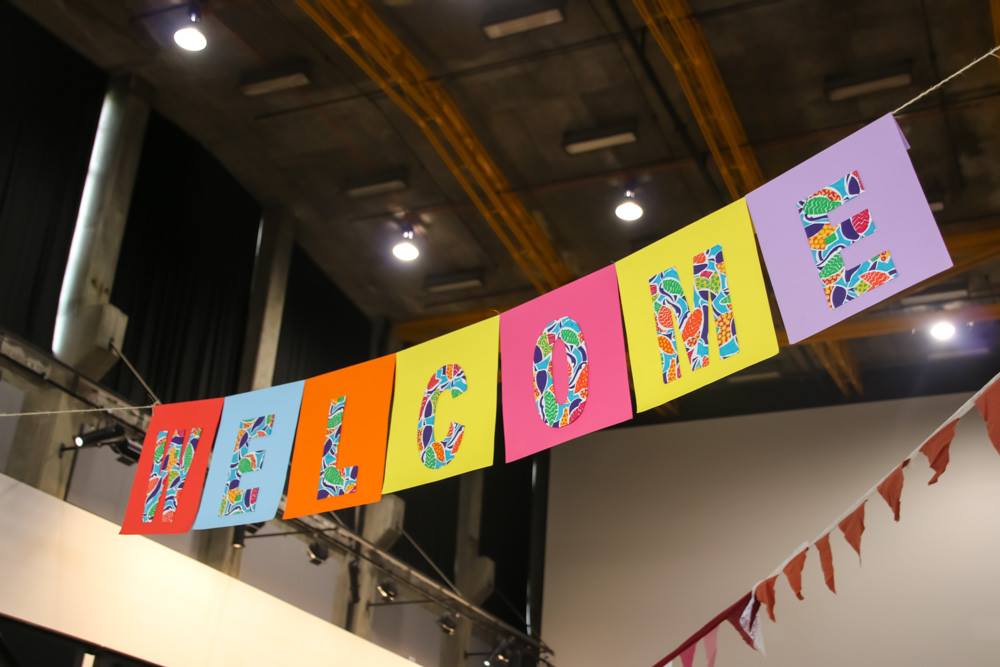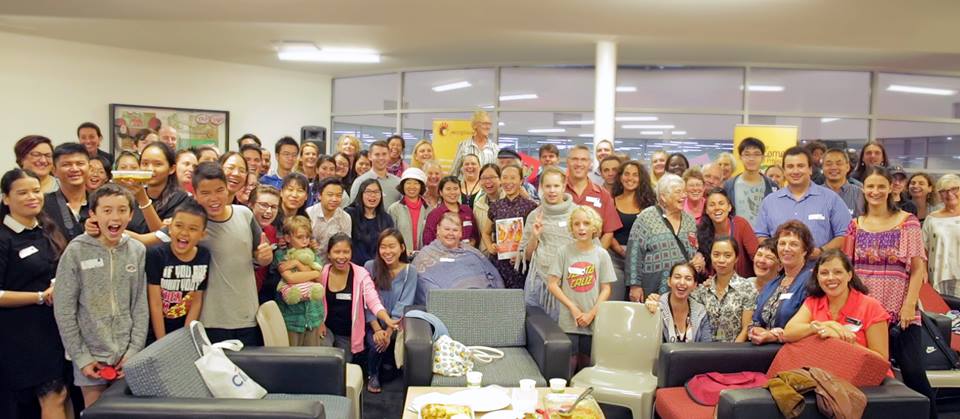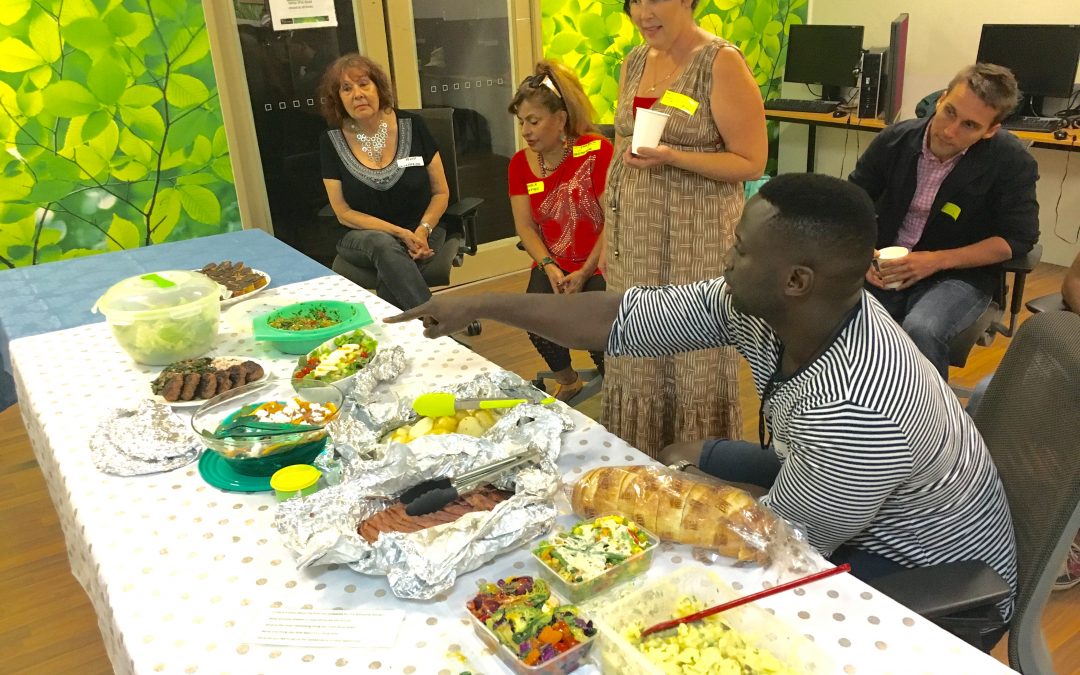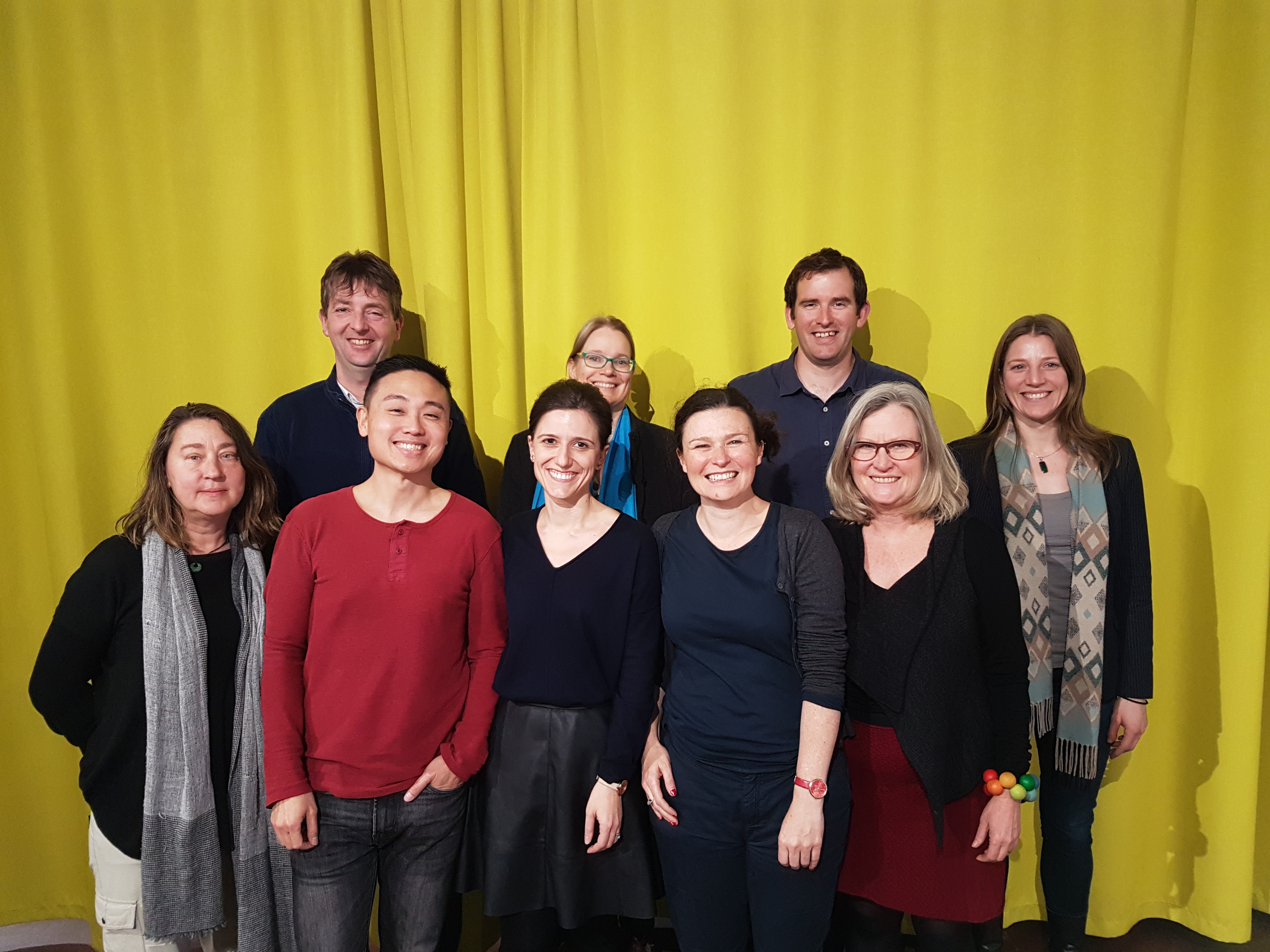How businesses can thrive
Thrivability in Business workshop – Melbourne University’s Thrive Research Hub, August 2017
Written by James Seow
I had the wonderful opportunity to attend the Thrivability in Business workshop organised by Melbourne University’s Thrive Research Hub in August 2017. Using the Eden Project as a case study, the workshop introduced participants to the Thrivability Competency Model, a framework of factors necessary for organisations to thrive. The workshop was led by Belina Raffy, Applied Improvisation and Thrivability thought-leader, and David Harland, Executive Director of the Eden Project and CEO of Eden Project International.
The workshop used Michelle Holliday’s “The DNA of Organisational Thrivability” model as a guide to considering an organisation’s capacity to thrive (https://ageofthrivability.com/). David related his experience at the Eden Project to this model.
Thrivability is defined as “the intention and practice of aligning organisations with how nature and people thrive.” The model invites us to look at an organisation from three perspectives: internal (Passion), external (Purpose) and the interface where the two connect and interact (Practical Play).
One exercise that unleashed my sense of humour and imagination is the “Evil/Good/Amazing” game. We started imagining how an “evil” café might run their business and what it would offer to their customers. Then, we discussed what a “good” café might do instead. The last stage involved us creating the vision for an “amazing” café – the ultimate goal of achieving good business profit, creating outstanding customer value and experience, respecting the environment, using sustainable resources and observing ethical and fair practices. Leaving the “amazing” stage at the end inspires ideas that we might not have thought of yet at the “good” stage.
Listening to fellow participants (I prefer to call them passionate change-makers) share their vision for more sustainable organisations, I gathered the following learning points that question an individual’s concept of organisational excellence.
- Conscious capitalism: Can businesses make money, respect the origins of their resources and do good for the community at the same time?
- Notice more, let go, use everything (by Robert Poynton): Instead of focusing on one target, can we be flexible and open to the opportunities and resources around us at any one time?
- The opposite of play is depression, not work: Make work fun!
- Biomimicry for solutions: Nature often inspires solutions. For example, what can a watering hole that brings animals in a desert together teach us about forming a community of like-minded people?
- Non-linear progress and processes: Think “out of the box” to look for solutions to existing problems. Reframe current issues and look at them from different angles. I recommend Edward De Bono’s book, Lateral Thinking, for this.
- Vision and “future truths” to build support and momentum: Sometimes, to convince prospective partners to collaborate with us, we have to behave as if we are already there. A “can-do” attitude and a strong conviction in one’s beliefs and goals help plans to materialise.
- No “but”; try “yes” and “and”: Instead of ignoring or negating what other people want and say, acknowledge their goals and build on that. Try saying, “YES, I see what you mean by this AND we can also….” Address your needs as well as the other person’s.
8. Who is in your team matters: I think this is the most important. Make sure you have the right people with the right attitude, potential and talent in your team. To paraphrase what David Harland, Executive Director of the Eden Project, said about his staff, if you were to cut in half all the people there, you would see “Eden” written inside every one of them. Get people who share the same values and goals with you on board.
Welcome to My Blog
Here is a basic blog layout with a right sidebar
Liverpool Community Welcome Dinner at Casula Powerhouse
In March we had a huge Community Welcome Dinner at the Casula Powerhouse Museum. Despite some minor setbacks with the trains not running to Casula Station right before the Dinner, the evening kicked off to a great start, with around 130 attendees, including heaps of...
Community Welcome Dinner at Eastlakes, NSW Friday 2nd June
In association with Multicultural NSW, Bayside Council, South Eastern Community Connect and Sydney Multicultural Community Services, joiningthedots will be hosting a special Community Welcome Dinner at Eastlakes Community Centre on Friday 2nd June from 6:00pm until...

The Welcome Dinner Project launch on the NSW Central Coast!
What a fantastic start to The Welcome Dinner Project on the NSW Central Coast. Upon arrival, the guests were carefully directed to the back of the second floor of the library where the event was due to start within the next few minutes. Aunty Bronwyn, a representative...
Community events in Melbourne in March/April
March and April in Melbourne are packed with multicultural festivals and events. We've got a number of exciting Community Welcome Lunches, Dinners and events coming up and would love for you and your friends/family to join us! Moonee Valley Community Welcome Dinner...
Smashing stereotypes: Sharing Welcome Dinner Project stories
Since 2014, hundreds of newly arrived and established Victorians have shared their homes, their food and their stories as part of the Welcome Dinner Project. On Sunday 12 February we ran a story sharing event where guests who had attended one or more Welcome...

Home Dinners and other activities in Brisbane
In the second half of 2016 we held three home Welcome Dinners and attended numerous festivals and workshops to raise awareness about the project. In the process we made some incredible connections: 10 June - Our work with Digital Storytellers began in June at the...


